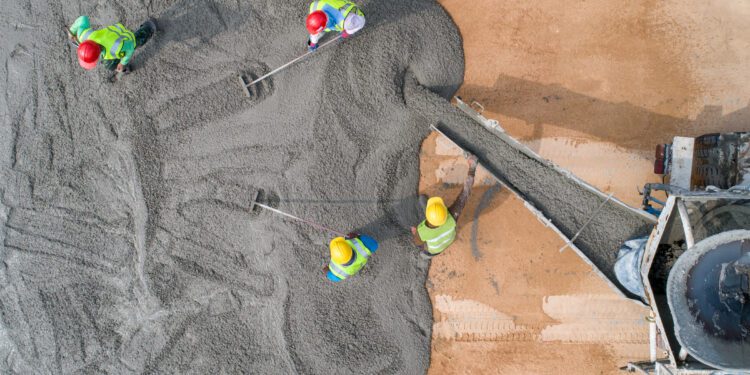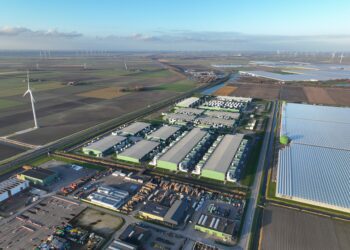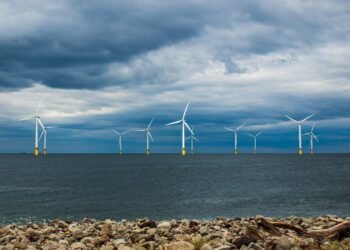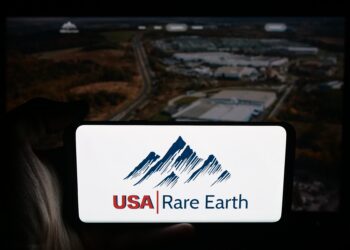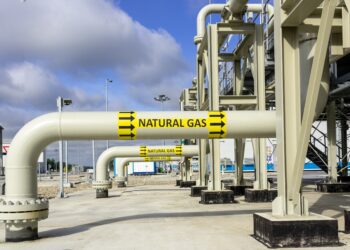In downtown Boston, a newly constructed building is home to a groundbreaking innovation in the cement industry. Near the entrance of the building, a bronze plaque embedded in the concrete floor reads: “This floor is the first commercial use of Sublime Systems’ cement made with a fossil-fuel-free cement manufacturing process. A step on this floor is a step closer to our post-carbon future.” The company behind this achievement, Sublime Systems, has developed the world’s first cement manufacturing process that eliminates fossil fuel use—offering a promising solution to the cement industry’s significant carbon emissions problem.
Leah Ellis, the company’s CEO and co-founder, described the innovation as “magic” when explaining the electrochemical process during a visit to the plant. A former battery scientist and Tesla intern, Ellis combined her scientific background with her passion for sustainability to create Sublime Systems. “Concrete is so big in our environment that it’s invisible, like the air you breathe,” Ellis said. This perception of concrete’s ubiquity drives the urgency behind Sublime’s goal: making the invisible—cement—more sustainable and reducing its carbon footprint.
Sublime’s pilot plant manufactures small batches of cement. The cement is a lighter shade of gray than traditional concrete, an aesthetic result of the company’s cleaner manufacturing process, and represents a visible step toward a post-carbon future.
While Sublime Systems’ cement is still in its early commercial use phase, the company is expanding rapidly. The next step in scaling up production is a new commercial-scale plant slated to open in Holyoke, Massachusetts, in 2026. This facility, supported by a $87 million grant from the U.S. Department of Energy, will allow Sublime to produce tens of thousands of tons of carbon-free cement annually.
The company’s method relies on electrochemical reactions that break down calcium silicate at room temperature rather than relying on fossil fuel combustion.
Although the company’s primary focus has been on cement, they are also exploring the production of mortar, an essential building material made from cement.
Sublime Systems’ work is part of an emerging wave of climate-focused startups that aim to address global challenges through innovation. By reducing the carbon emissions associated with cement production, the company is not only contributing to sustainability but also positioning itself as a leader in the green building materials market.
The introduction of carbon-free cement into commercial use represents a major step toward transforming an industry that has long been a major contributor to global emissions. As Sublime Systems’ production capacity increases, its impact on the environment could become significant. The company’s success could encourage others in the construction industry to adopt cleaner alternatives, making a considerable dent in global carbon emissions in the process.

